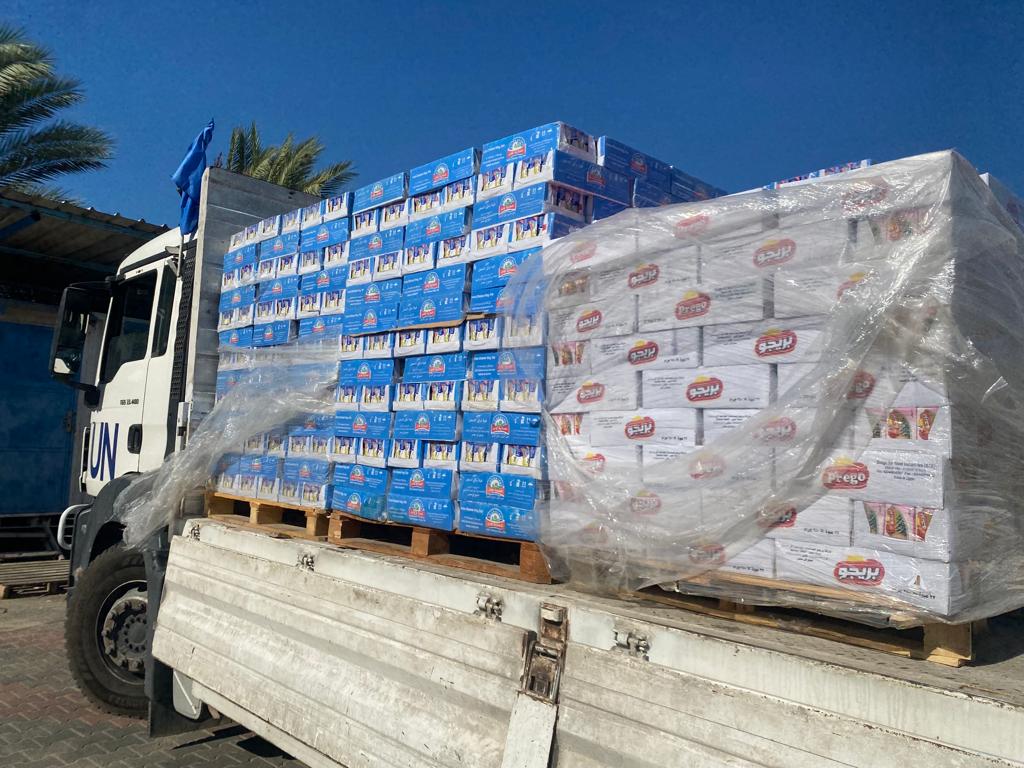With Cordaid’s support, aid workers are providing emergency relief in Gaza. Our colleagues from DanChurchAid (DCA) and Catholic Relief Services (CRS) are on the front lines, taking great risks to access the victims of the ever-expanding conflict.

Long before the start of the current conflict, the humanitarian needs in Gaza were already urgent. Now, the situation has turned into an acute disaster. Nearly five months after the start of the war, more than 28,000 people have been killed and almost 68,000 have been injured.
The devastation throughout the area is unprecedented. More than 80% of the population has been displaced. However, people in Gaza have been displaced for decades. This war only increases the trauma that is passed down from generation to generation.
Humanitarian duty
“For Cordaid, it is a humanitarian duty to alleviate the need and suffering of people in disaster areas,” says Laurens den Dulk, a member of Cordaid’s emergency response team in The Hague. “To do this in Gaza, we support DCA and CRS. They are among the few international NGOs that have been able to continue working with Palestinian employees in the area all these months. With minimal options, they can still provide humanitarian assistance efficiently. This shows why it is important that local first responders have all the resources needed to do their work.”
Activities in Gaza
Despite the many risks and the highly unpredictable and volatile situation, our colleagues on the ground have started the following activities:
DanChurchAid provides:
7,200 food parcels to approximately 16,000 people;
financial support to 3,000 people;
blankets, mattresses, and essential hygiene products to 6,190 people.
Catholic Relief Services provides:
blankets and mattresses to approximately 9,000 people;
tents to approximately 14,400 people.
Food shortages
2.3 million people live in the closed-off Gaza Strip. Stores, bakeries, and markets are closed due to the continuous bombings and violent attacks. This makes food distributions not only crucial but also extremely difficult to organise.
“Our work would not have been possible without our two colleagues in Gaza,” says DCA employee Manal Shahade from Jerusalem. “After every ground and air attack, they know whether and where food is still available and where the food shortage is the most urgent. They monitor which supermarkets and vendors are still operational and where people manage to set up small informal food markets. Every day we see that food shortages are becoming more dire.”
“Our colleagues have also become displaced, surviving in bomb shelters, and suffering traumas.”
Extremely unsafe
Many displaced people are staying in shelters organised by the United Nations. They receive the most support from the international community. However, with one toilet per two hundred people and little food available, the conditions are far from good.
Security also remains a concern, as the death of more than a hundred aid workers from the UN aid organisation in Gaza, UNRWA, has shown. The bombing of a warehouse where DCA had stored food for 4,000 families is another morbid illustration of the extreme insecurity.
“The other half of the displaced people are staying with family, friends, or anyone who can lend a helping hand. We call that ‘informal shelter’,” says Manal. “These people stay under the radar and are even more vulnerable. Our colleagues in Gaza do their utmost to locate displaced people in those informal shelters, identify their most urgent needs, and provide assistance.”

Aid workers are also victims
Manal explains how blurred the boundaries have become between the providers of support and the victims: “Everyone there needs our support. Our colleagues have also become displaced, surviving in bomb shelters, and suffering traumas. As an aid organisation, we do what we can. But the truth is that we cannot protect them. Sometimes we deliberately talk about banal, funny things on the phone, while the attacks continue nearby. That is also a way of dealing with what is unbearable.”
“I have been to Gaza many times and have spoken a lot with colleagues and friends,” Manal continues. “With every new crisis, they told me: ‘It will pass, we will get through it’. This time it’s different. The scale of loss and destruction is too great. People have reached their limit. All Gazans, including our staff, need psychosocial support to even begin to process what has happened to them. All we ask is for the violence to stop. And to let us, emergency responders, do our work. Because the need is unprecedented.”